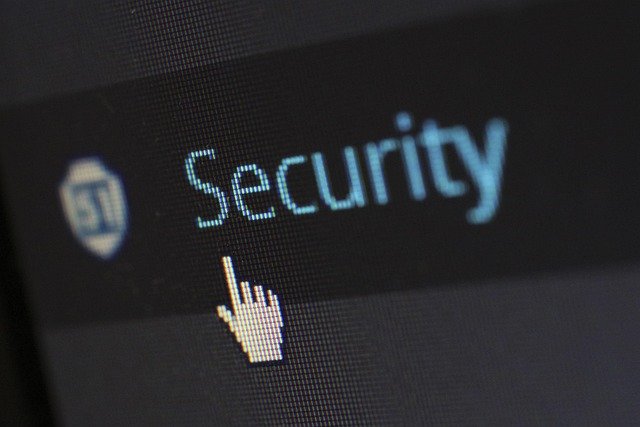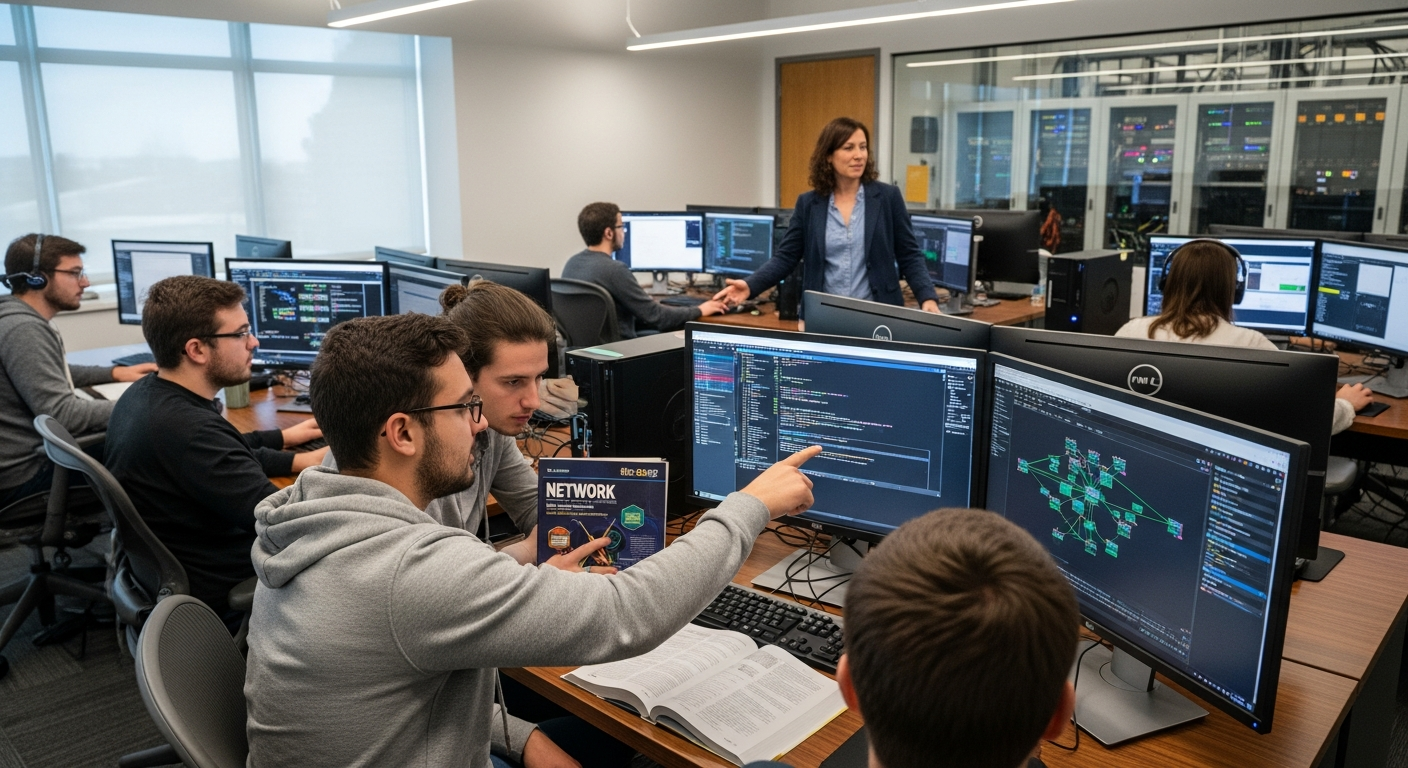Cyber Security Degree Programs and Career Paths in Indonesia
The digital landscape in Indonesia continues to expand rapidly, creating unprecedented demand for cybersecurity professionals. With cyber threats becoming more sophisticated and frequent, organizations across the archipelago are actively seeking qualified experts to protect their digital assets. A cyber security degree offers comprehensive training in threat detection, risk management, and digital forensics, providing graduates with the skills needed to safeguard critical information systems. Whether you're considering a career change or starting your educational journey, understanding the various pathways into cybersecurity can help you make informed decisions about your professional future.

Online Programs in Cyber Security for 2025
The digital transformation accelerating across Indonesia has made cybersecurity education more accessible than ever. Online cyber security programs offer flexibility for working professionals and students who cannot attend traditional campus-based courses. These programs typically cover fundamental concepts including network security, ethical hacking, incident response, and compliance frameworks.
Major Indonesian universities have begun offering comprehensive online degrees that meet international standards. Students can access virtual laboratories, participate in simulated cyber attack scenarios, and collaborate with peers through digital platforms. The curriculum often includes hands-on experience with industry-standard tools and technologies used by cybersecurity professionals worldwide.
Online programs also provide opportunities to earn industry certifications alongside degree requirements. Many courses integrate preparation for globally recognized credentials such as CompTIA Security+, Certified Ethical Hacker (CEH), and Certified Information Systems Security Professional (CISSP).
Cyber Security Training Options to Explore This Year
Beyond traditional degree programs, numerous training pathways exist for aspiring cybersecurity professionals. Bootcamps offer intensive, short-term training focused on practical skills development. These programs typically last between 12 to 24 weeks and emphasize hands-on learning through real-world scenarios.
Professional development courses provide targeted training in specific cybersecurity domains. Specialized areas include penetration testing, digital forensics, cloud security, and mobile device security. Many of these courses offer flexible scheduling options, allowing participants to continue working while advancing their skills.
Government and private sector partnerships have created apprenticeship programs that combine classroom learning with practical work experience. These initiatives help address the growing skills gap in Indonesia’s cybersecurity workforce while providing participants with direct pathways to employment opportunities that may become available.
Educational Paths for a Future in Digital Protection
Cybersecurity education encompasses multiple academic levels and specializations. Bachelor’s degree programs provide foundational knowledge in computer science, information systems, and security principles. These four-year programs typically include coursework in programming, database management, network administration, and risk assessment.
Master’s degree programs offer advanced specialization in areas such as cybersecurity management, digital forensics, or information assurance. Graduate-level education often includes research components and thesis projects that contribute to the evolving field of cybersecurity knowledge.
Doctoral programs focus on cybersecurity research and academic careers. PhD candidates typically conduct original research in emerging areas such as artificial intelligence security, quantum cryptography, or behavioral cybersecurity.
Career Opportunities and Professional Development
The cybersecurity field offers diverse career paths across multiple industries, though specific opportunities vary by location and market conditions. Entry-level positions may include security analyst, network security specialist, and incident response technician roles. These positions typically require foundational knowledge and industry certifications rather than extensive experience.
Mid-level positions encompass security architect, penetration tester, and cybersecurity consultant roles. These positions generally require several years of experience and often demand specialized certifications in specific technology domains.
Senior-level opportunities include chief information security officer (CISO), security director, and cybersecurity researcher positions. These roles require extensive experience, advanced education, and demonstrated leadership capabilities. Job availability and requirements may vary significantly based on market conditions and organizational needs.
Industry Certifications and Skill Development
Professional certifications play a crucial role in cybersecurity career advancement. Entry-level certifications such as CompTIA Security+ provide foundational knowledge validation. Intermediate certifications like Certified Information Systems Auditor (CISA) and Certified Information Security Manager (CISM) demonstrate specialized expertise.
Advanced certifications including CISSP and Certified Information Systems Security Architecture Professional (CISSP-ISSAP) indicate senior-level competency. Many employers in Indonesia recognize these international certifications and may require them for specific positions, though requirements vary by organization.
Continuous learning remains essential in cybersecurity due to rapidly evolving threat landscapes. Professionals must regularly update their skills through ongoing training, conference attendance, and industry networking activities.
| Program Type | Provider Examples | Duration | Cost Estimation |
|---|---|---|---|
| Online Bachelor’s Degree | Various Indonesian Universities | 4 years | IDR 80-150 million |
| Cybersecurity Bootcamp | Technology Training Providers | 12-24 weeks | IDR 15-35 million |
| Professional Certification | International Certification Bodies | 3-6 months prep | IDR 5-15 million |
| Master’s Degree | Graduate Programs | 2 years | IDR 100-200 million |
Prices, rates, or cost estimates mentioned in this article are based on the latest available information but may change over time. Independent research is advised before making financial decisions.
Future Trends and Emerging Technologies
The cybersecurity landscape continues evolving with emerging technologies and threat vectors. Artificial intelligence and machine learning are increasingly integrated into security solutions, requiring professionals to understand these technologies. Cloud security expertise becomes more valuable as organizations migrate operations to cloud platforms.
Internet of Things (IoT) security presents new challenges as connected devices proliferate across Indonesian businesses and homes. Cybersecurity professionals must develop skills to secure diverse device ecosystems and manage associated risks.
Quantum computing represents both an opportunity and threat for cybersecurity. While quantum technologies may eventually break current encryption methods, they also offer potential for unbreakable quantum cryptography systems. Forward-thinking cybersecurity professionals are beginning to prepare for this technological transition.
The field of cybersecurity offers promising career prospects for Indonesian students and professionals willing to invest in proper education and skill development. With multiple educational pathways available and growing demand for qualified experts, this represents an excellent time to explore cybersecurity education and training options. Prospective students should research current program availability and admission requirements independently before making educational decisions.




